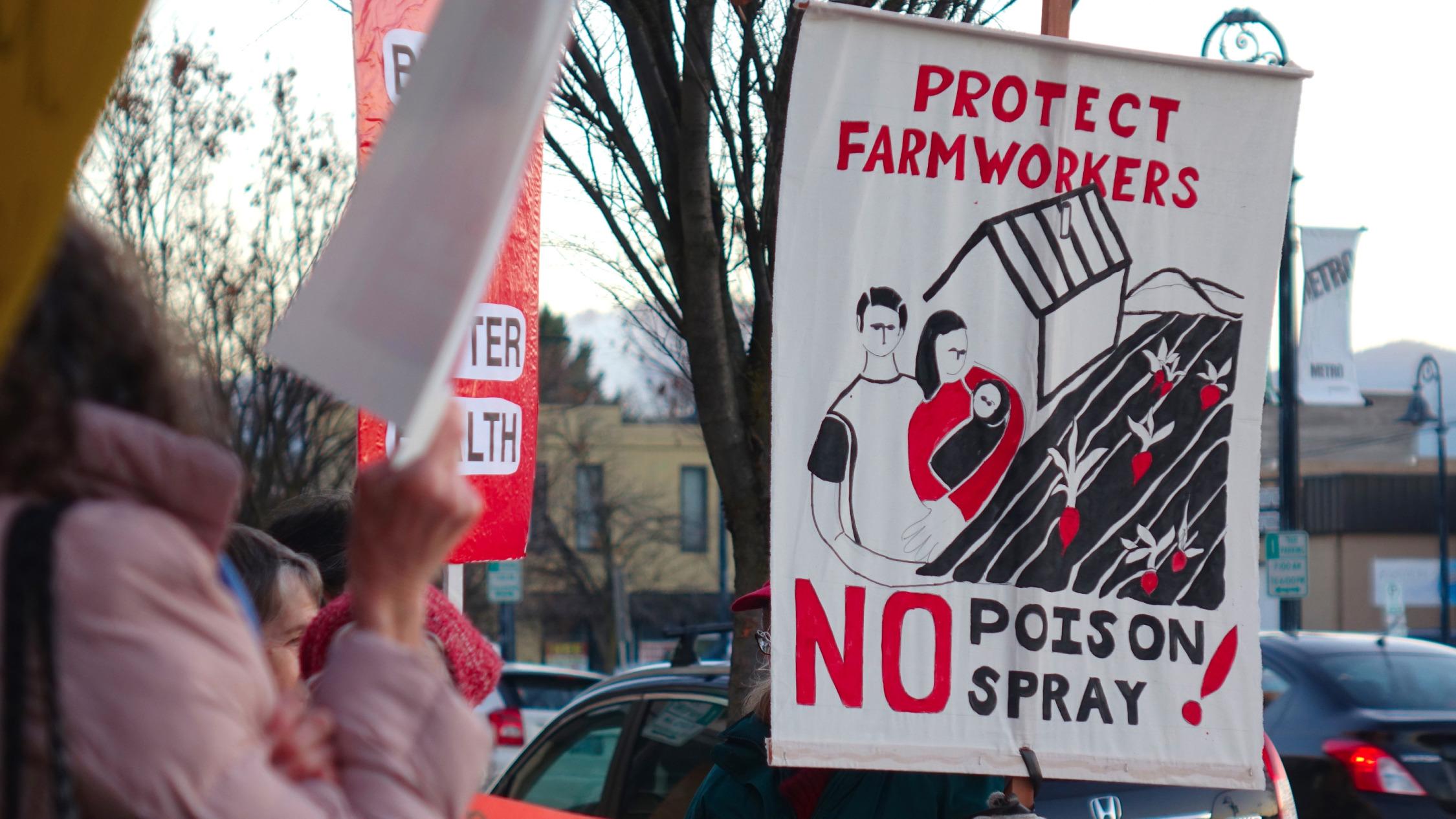
Advocates at a protest in Medford say new Oregon OSHA rules won't protect farmworkers.
Jes Burns / OPB/EarthFix
Oregon has adopted new rules to protect farmworkers from pesticides.
The new regulations establish zones around pesticide applications that workers cannot enter. It also allows workers the choice to take shelter in housing or other structures instead of moving away.
For additional EarthFix coverage, click here.
The announcement comes as the Trump Administration continues to threaten to roll back similar protections on the federal level.
Oregon’s new rules offer stronger protections for farmworkers than federal regulations. And they’ll be the state’s standard no matter what happens nationally. Farm groups have cautioned this could put Oregon growers at a competitive disadvantage if the federal rules change.
Worker groups had also criticized the shelter-in-place option because farmworker housing is often old and drafty.
“I think probably the best of the growers are avoiding situations where they’re applying pesticides in one part of the orchard when they have workers immediately adjacent to it. This will simply make it a required practice for everybody,” said Michael Wood, administrator of Oregon OSHA.
Wood said the state received about 1,100 public comments on the regulations.
Over the past year, Lisa Arkin of Beyond Toxics had been urging Oregon to adopt more protective standards for workers. She said even though farmworkers are given choices in how they protect themselves, strong regulations can help offset other pressures workers may face.
“Really don’t know what it’s like to be a farmworker. And whether I might feel like I’d incur the wrath of my employer if I went 500 feet away as opposed to 100 feet away,” she said. “Would I be judged for that?”
The state rules go into effect on January 1, 2019.
